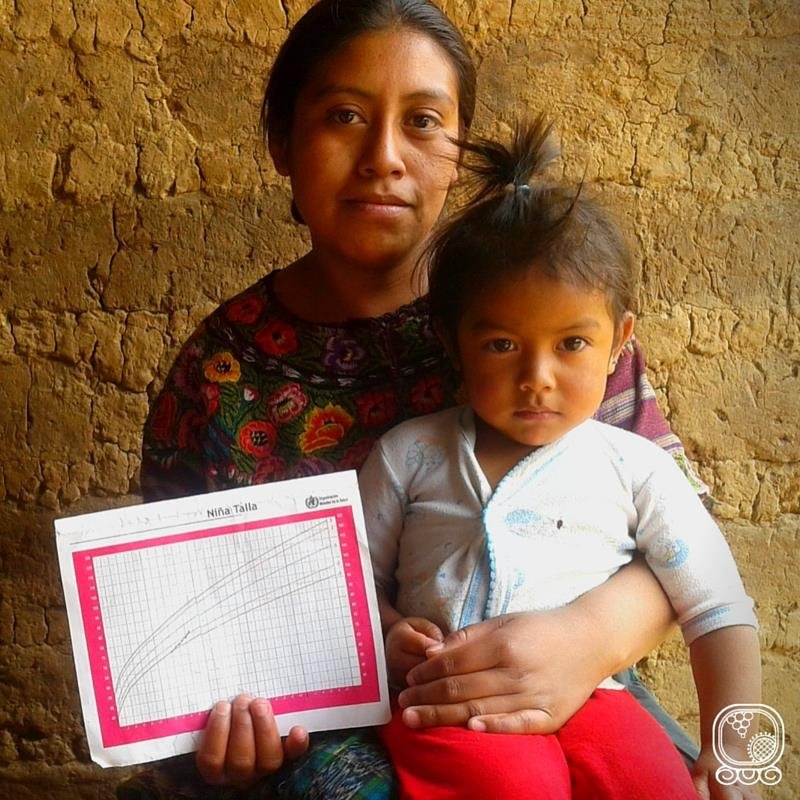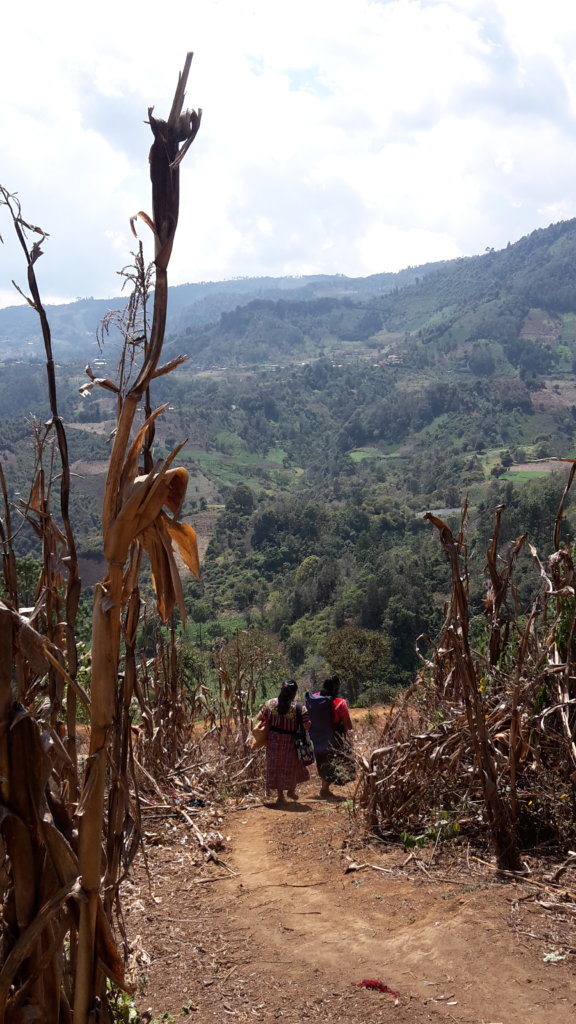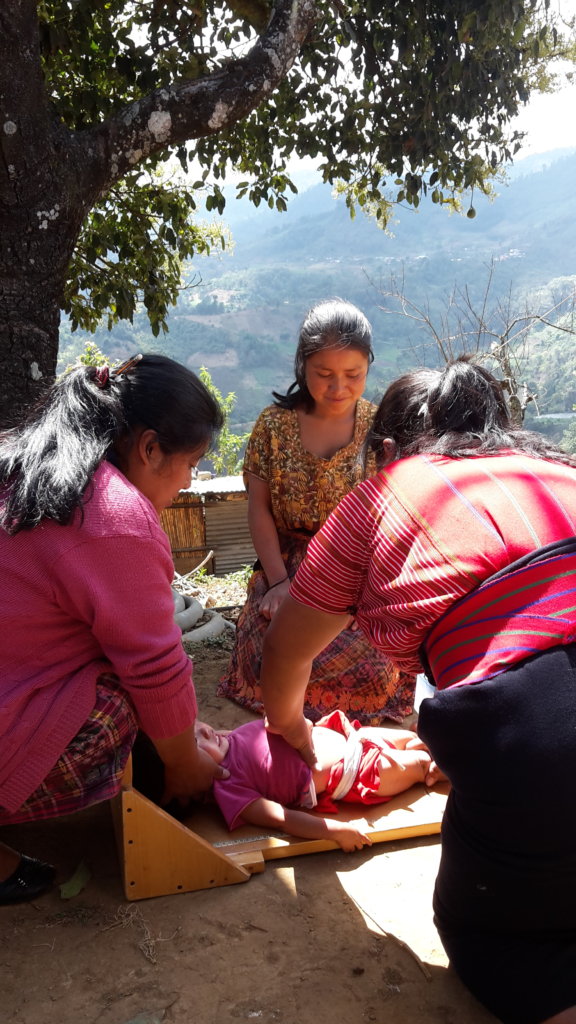By Anne Kraemer Diaz | Executive Director
Dear Friends,
You’ve heard from us before about the importance of fighting chronic malnutrition during the first few years of life. Much of a child’s development— the development of the brain and major organ systems— occurs during this window, and after the window is closed, not much can be done to ameliorate the insults to growth and development that occurred before the child had a chance to celebrate his or her third birthday. Children who are chronically malnourished hit developmental milestones far behind their non-stunted peers, score lower on verbal reasoning and IQ tests, and are more susceptible to infectious disease. They never fully recover from the sup-par development they experienced as infants, and adults who were stunted as children are also much more likely to suffer from chronic diseases like diabetes or heart disease. In contexts like Guatemala, chronic disease often goes untreated, which means that stunted children grow into chronically ill, less productive adults, who, in turn, are often less able to provide for their own children, meaning the children of adults who were chronically malnourished as children are much more likely to be chronically malnourished themselves. And so on, generation after generation.
It’s a cycle of illness and poverty that is very hard to break out of.
This window during infancy, this infamous “thousand days”, is very small. So small and so fragile, in fact, that many members of the global health community consider the amelioration of chronic malnutrition to be an impossibility, despite its obvious impact on human health and well-being.
We disagree. And we’d like you to meet one of our many reasons why.
This is Sandy.
Sandy is now 22 months old and growing well. When she first came to us, she was 16 months old and several standard deviations below normal on her growth chart. Her mother was worried. Sandy had always been a happy child, but she wasn’t speaking yet, and although she loved to play with her stuffed animals, and was alert and affectionate with her parents and siblings, she sometimes seemed tired and listless. After Sandy was enrolled in Wuqu’ Kawoq’s nutritional program, her mother began noticing small changes in Sandy’s behavior. Now, says her mother, she cries less, plays more, and eats better than she did before. Sandy has two older brothers who weren’t enrolled in nutritional programming, and her mother tells us that Sandy is smarter and taller than them both.
It can be hard to see the difference that overcoming chronic malnutrition has on the body when the person in question is still a child. To most of us, the only visible difference just looks like a few simple lines on a graph. To put it in perspective, let me list a few of the things that this seemingly small accomplishment is likely to mean in the future:
Sandy will likely meet or even exceed all developmental milestones.
She is much less likely to contract or to die from respiratory or diarrheal diseases while she is still a child.
She is much more likely to grow up to be literate and to score well on verbal reasoning exams.
Sandy likely won’t be chronically anemic, and thus she is much less likely to die during childbirth.
When she grows up, Sandy likely won’t be diabetic or suffer from metabolic or vascular disorders. She won’t have heart disease as a young woman nor will she be afflicted with early-onset dementia. In all likelihood, she'll be free from chronic disease.
Sandy will very likely grow up to be a strong, smart, healthy young woman who will go on to raise strong, smart, and healthy kids, if she chooses to have children.
And just like that…in a mere 6 months, Sandy and her mother may have helped break the cycle of poverty and illness for one family. And Sandy is just one of many children who, with the help of Wuqu’ Kawoq’s nutritional programming, have beaten stunting during infancy. As of this date, there are 1,250 children enrolled in WK’s nutritional programming.
Every child matters, because every child carries within them the seeds of change.
As do you.
Thank you, as always, for your support and generosity. Together, we are making the impossible possible, one child, and one family, at a time.
Links:
Project reports on GlobalGiving are posted directly to globalgiving.org by Project Leaders as they are completed, generally every 3-4 months. To protect the integrity of these documents, GlobalGiving does not alter them; therefore you may find some language or formatting issues.
If you donate to this project or have donated to this project, you can receive an email when this project posts a report. You can also subscribe for reports without donating.
Support this important cause by creating a personalized fundraising page.
Start a Fundraiser

